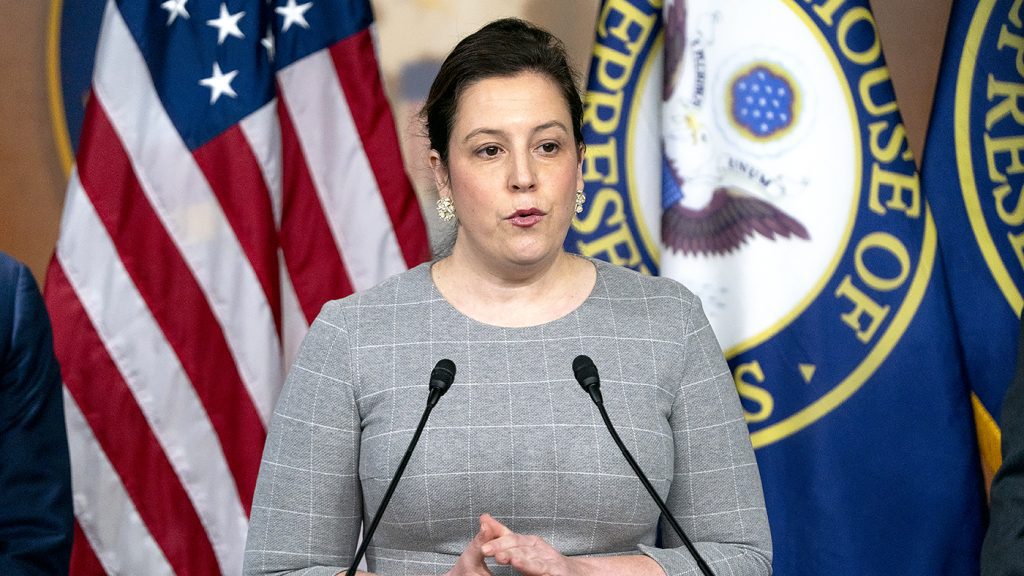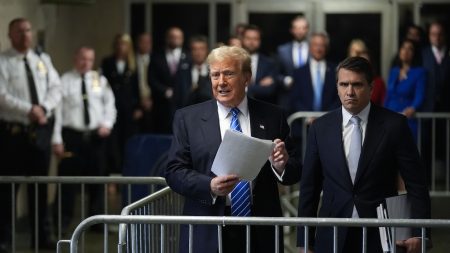All 10 House Republicans from New York urged Columbia University President Minouche Shafik to resign on Monday because of intense pro-Palestinian demonstrations on campus that have brought increased criticism of the university’s leadership from all sides.
Led by Rep. Elise Stefanik (R-N.Y.), the members said Columbia’s campus has been overwhelmed by “anarchy” and that Shafik has not fulfilled her duty to provide a secure learning environment for students.
Hundreds of students have taken over Columbia’s campus, demonstrating against the Biden administration’s handling of the Israel-Hamas conflict, supporting a cease-fire, and urging Congress to halt military aid to Israel.
Over 100 protesters were arrested on Friday at Shafik’s direction, but demonstrations have only grown in size and spread to other college campuses nationwide.
“The unfolding situation on campus right now is a direct result of your policies and misguided decisions,” the letter says. “Given these recent events and your testimony before Congress, we have no faith in your leadership of this previously respected institution.”
“The ongoing situation that has emerged is a direct result of your ongoing lenient enforcement of policy and obvious double standards,” they continued. “While the problem is institutional, the responsibility falls squarely on your shoulders. It is time for Columbia University to move on from this disgraceful chapter. This can only be achieved through restoring order and your immediate resignation.”
Calls for Shafik to step down have grown on Monday from both sides of the political spectrum, with Sen. John Fetterman (D-Pa.) making similar calls. A group of Jewish House Democrats also hinted during a visit to Columbia on Monday that they could also support efforts to oust the president if changes are not made soon.
Concerns are mounting over the safety of the Jewish student body at Columbia amidst the criticism, with some accusing protesters of harassment. Columbia shifted to online classes starting Monday, just before the Jewish holiday of Passover.
The Biden administration criticized the protests on Sunday, labeling them “blatantly antisemitic” and accusing them of promoting “calls for violence.” New York City Mayor Eric Adams (D) made similar remarks.
A significant portion of the protesting students are Jewish, and protest groups have pushed back against portrayals of their demonstrations as antisemitic. There have been no reports of violence from the protests.
“We are frustrated by media distractions focusing on inflammatory individuals who do not represent us,” protest leaders stated on Sunday. “Our members have been misidentified by a politically motivated mob.”
“We firmly reject any form of hate or bigotry and stand vigilant against non-students attempting to disrupt the solidarity being formed among students,” they continued. “Palestinian, Muslim, Arab, Jewish, Black and pro-Palestinian classmates and colleagues who represent the full diversity of our country.”
In response to the criticisms of Columbia’s administration, Shafik said earlier Monday in a statement that she is “deeply saddened” by the campus protests.
“The volume of our disagreements has only increased in recent days,” she said. “These tensions have been used and magnified by people who are not connected with Columbia who have come to campus to pursue their own agendas. We need a reset.”
“There is a terrible conflict raging in the Middle East with devastating human consequences,” she continued. “But we cannot have one group dictate terms and attempt to disrupt important milestones like graduation to advance their point of view. Let’s sit down and talk and argue and find ways to compromise on solutions.”
University leaders will hold discussions with student protesters and faculty in the coming days as an attempt to “deescalate” tensions on campus, she said.
New York Republican Reps. Nicole Malliotakis, Claudia Tenney, Nick Langworthy, Mike Lawler, Anthony D’Esposito, Nick LaLota, Brandon Williams, Andrew Garbarino, Marc Molinaro and Stefanik signed the letter.









